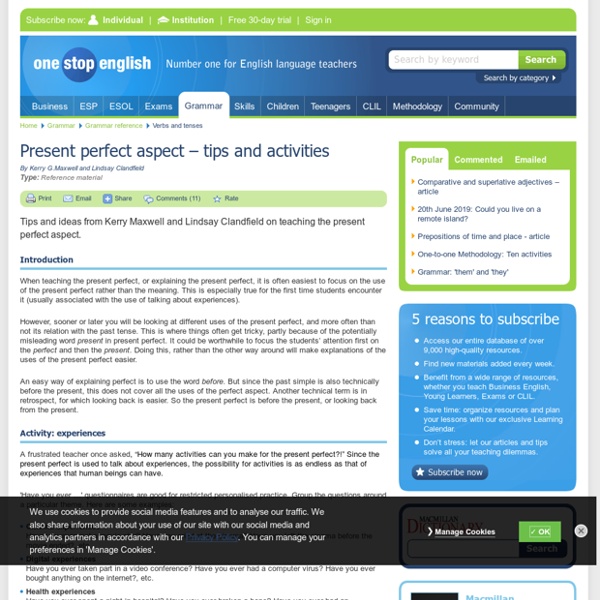I slept like a log. (Sleep idioms) – About Words – Cambridge Dictionaries Online blog
by Kate Woodford This week, we’re looking at the surprising number of idioms in English that relate to sleep and rest. Try to stay awake till the end!
'As American as Apple Pie'
Why is apple pie so American? (USDA photo by Scott Bauer) Welcome back to Words and Their Stories from VOA Learning English! Each week we explore the roots and meaning of common American expressions.
We Put Things in "Apple Pie Order"
Now, the VOA Special English program Words and Their Stories. Today we tell about the expression “apple pie order.” It means “in perfect order, very well organized.” Nobody is sure where and when the expression “apple pie order” began. Some say that Scottish and English writers used the expression a long time ago.
Miscellaneous reading worksheets
Are you experienced?An American English worksheet to read a list of life experiences and find out how experienced you are.Are you experienced?A British English worksheet to read a list of life experiences and find out how experienced you are.Cultural tic tac toeAn American English worksheet to practice the present passive.DescriptionsAn American English worksheet to write a description of a place or person using given words and expressions.DescriptionsA British English worksheet to write a description of a place or a person using given words and expressions.Did you know …?An American English worksheet to match two parts of a sentence.Did you know …?A British English worksheet to match two parts of a sentence.Did you know …?
Homes of the Future
Good morning. Today I'll be experiencing a taste of the future. From the latest in home design to incredible gadgets, I’ll be looking at how we could be living in the future. A hot shower is a great start to the day, but this is no ordinary shower. It’s using rain water collected from the roof and heated by solar energy, or heat from the sun.
Reading house
This lesson focuses on describing houses, and what our houses can say about us. Students will review vocabulary to describe different types of houses and their features, read about unusual housing types, speak about housing in their own country and take part in a discussion about young people leaving home. Aims: • To learn and practise vocabulary for describing houses. • To develop reading skills • To practise speaking and discussion skills. Age group: 12- adult Level: B1 / B2
Blogging for ELT
It gives an overview of blogging websites, suggests why you might want to use them, and gives some practical advice on setting up blogs for use with your own classes. What is a blog? Types of blogs used in language teaching Why blog? Where to start Tips for managing learner blog settings Keeping students interested Some ideas for activities Pitfalls to watch out for Advanced feature
5 Web Tools to Create Awesome Digital Newspapers for Your Class
To help you create digital newspapers for your class, we curated a list of some of our favorite web tools for this purpose. The list below is an updated version of the list we created last year. enjoy 1- Issuu
ESL Games for the Classroom
Alphabet Shout Out Randomly choose an alphabet flashcard and award a point to the first student who shouts out a word beginning with that letter. Alphabet Writing Relay Divide and line up the students into two teams. Divide the board into two halves and have one student from each team run to the board, write 'A', then run to the back of the line. The next student writes 'B', etc. The first team to finish wins.



